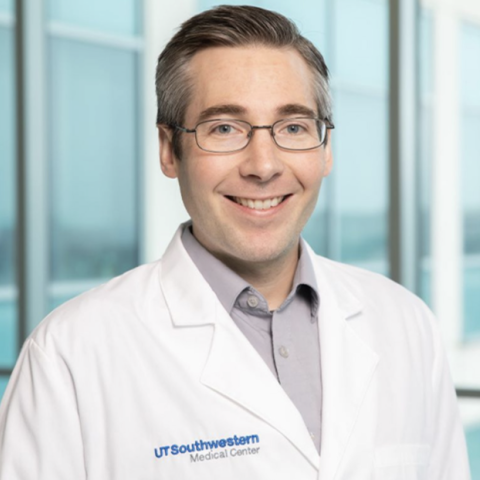
W. Mike Henne
Associate Professor & Director of the Lipid Metabolism & Neurodegenerative Diseases (LMND) Program
Dr. Henne received his B.S. in Cellular and Molecular Biology from Texas Tech University in Lubbock, Texas. He was a 2004 Goldwater Scholar, and accepted an MRC Scholarship from the UK to pursue graduate studies at the MRC Laboratory of Molecular Biology at Cambridge University. As a student in the lab of Harvey McMahon, Ph.D., he studied how membrane sculpting BAR and F-BAR domain-containing proteins promote clathrin-mediated endocytosis. Mike was awarded the Max Perutz Prize for his graduate work.
Following graduate school, Dr. Henne began a postdoctoral position in the laboratory of Scott Emr, Ph.D. at Cornell University as a Sam & Nancy Fleming Research Fellow. He continued to study endomembrane trafficking and membrane shaping by the ESCRT pathway. He also developed a genome-wide screening approach, which identified the protein Mdm1 as a novel ER-vacuole/lysosome tethering protein. Capitalizing on these findings, he started his lab at UT Southwestern in late 2014 as an Endowed Scholar. In 2016 he was named a Searle Scholar.
Dr. Henne's lab exists at the interface between lipid metabolism and human diseases. His lab pioneered studies of the cerebellar ataxia disease SCAR20, and were among the first to report the cellular basis for this neurological disease, caused by loss-of-function mutations in the gene SNX14. Collaborative work revealed that SNX14 mutations cause defects in neuronal lipid metabolism and disrupts inter-organelle lipid transport, ultimately leading to Purkinje neuron death and progressive cerebellar ataxia. In 2025, Dr. Henne was awarded the Martha Lee Foster Professorship in Brain Science & Medicine for his contributions, and now serves as the Director of the Lipid Metabolism & Neurodegenerative Disease (LMND) Program at UTSW.
Dr. Henne is heavily engaged in mentoring, grant review, and multi-disciplinary research at UTSW and beyond. He serves as Director of the UTSW Lipid Metabolism and Neurodegenerative Diseases (LMND) Program, a multi-disciplinary collaboration between the Dept of Cell Biology and O'Donnell Brain Institute (OBI) that connects basic and clinical scientists with shared interests in neurological diseases. He is also Director of the Cells section of the UTSW Graduate Program Core Course, and teaches a ‘Controversies in Cell Biology’ class each spring for the Cell and Molecular Biology (CMB) Program. As of 2026 he also serves as a junior faculty coach/mentor in the UTSW SOAR program, which trains early career PIs to write R01s. As a leader in the lipid metabolism field, he was elected co-organizer of the 2024 FASEB Lipid Droplets SRC Conference, and is currently lead organizer of the 2026 FASEB Lipid Droplet SRC Conference. He was also recently elected as Co-Chair of the 2027 ASBMB Annual Meeting. Dr. Henne regularly serves on NIH study section and other grant review committees.
See more about Dr. Henne's research and leadership roles here.